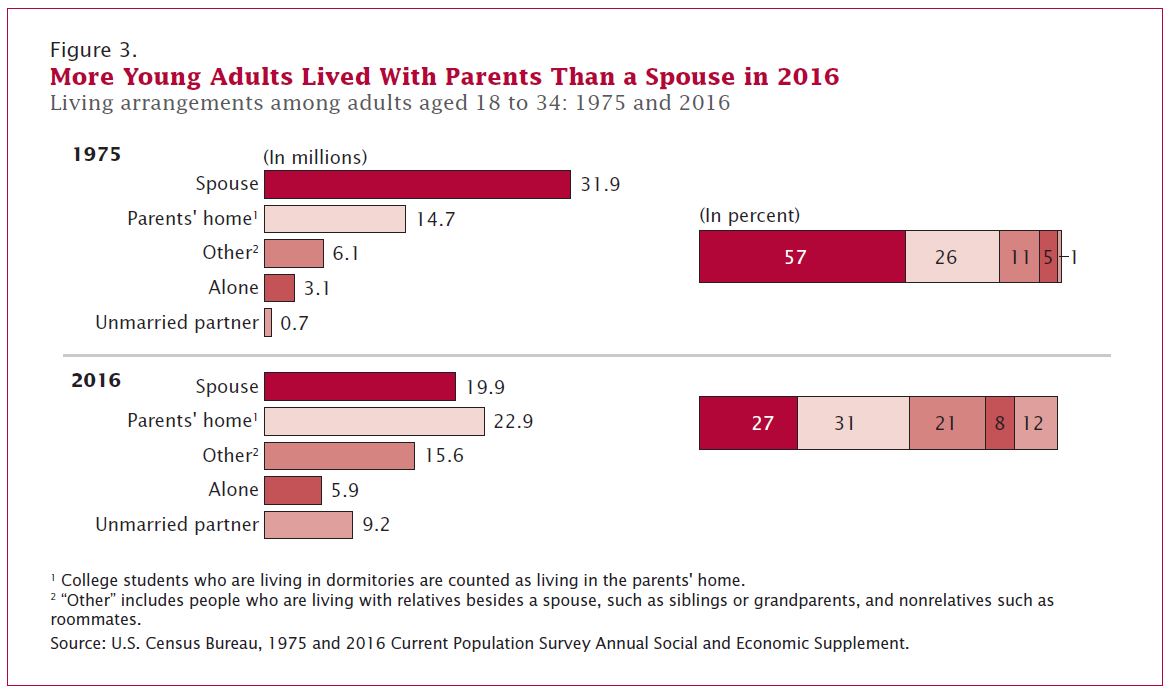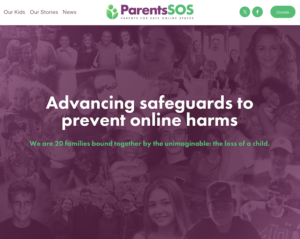
Video games are a ubiquitous form of entertainment in today’s children and youth, and while fun and exciting, have a darker side that parents, teachers and health professionals can no longer ignore. While many adults struggle with gaming addiction, parents don’t seem to consider gaming’s addictive nature when allowing young children to game. When evaluating impact of video games on children, 3 parameters are important to consider: duration, content, and age of first exposure. Children who start gaming later in childhood, and who stay under the expert guidelines for duration and content, will likely demonstrate less negative effects from gaming. Whereas children who start gaming young in life, play video games for long periods, and who play predominantly Mature content with sexual and physical violence, will likely exhibit a greater number of below noted negative effects. Children who experience 3 or more of the following conditions have significant negative effects from playing video games, and should work with their parents, physician and/or therapist to improve access to healthy activities and stop using video games if under the age of 12 years. Teens who are older than 12 years of age and demonstrate more than 3 of the following conditions, would benefit from increasing access to healthy activities and subsequently reduce game duration, change to non-violent game content, and possibly consider quitting gaming altogether until 18 years of age.
- Physical impairments: high blood pressure, sedentary effects (obesity, overweight, developmental delay, myopia, musculature disuse/overuse).
When children are gaming their bodies are sedentary and their brains overstimulated. Developing bodies crave movement, yet video games entrance and hypnotize the brain into sitting still, often for very long periods. Sedentary bodies delay physical development while also overstimulating the heart, causing serious and often irreversible physical impairments. Psychiatrist Dr. Victoria Dunckley author of “Reset your child’s brain” reports that when children play video games, their sympathetic nervous system goes into a hyper aroused state of “flight or fight” characterized by adrenalin release from adrenal glands and dopamine production in the brain. Sustained high blood pressure and increased heart rate from prolonged gaming, increases risk for heart attack and stroke in later years. A child taking stimulant medication for adhd who also plays video games, increases the load on their hearts. Causal factors for video game induced hyperarousal are fast paced and violent content, bright lights, rewards, multitasking, and interactivity. Long term high adrenalin states can result in chronic adrenal fatigue, causally implicated in physical illnesses including cancer and autoimmune disorders.
- Brain damage (from frontal love pruning): attention deficit, impulsivity, learning disorders.
To achieve functional efficiency during brain development, the brain prunes or cuts away neuronal tracks to areas of the brain that are not being used. The frontal lobes of the brain are known for executive functions such as attention, memory, and impulse control which are critical for academic success. Because brains develop in conjunction with stimuli in the surrounding environment, media content in high screen users is key regarding brain pruning. Exposure to mindful or educational content results in active or constructive learning, which maintains and strengthens neuronal tracks to frontal lobes. Whereas exposure to mindless or entertainment content such as fast paced and violent video games, constitutes passive or destructive learning which rarely requires use of frontal lobes, resulting in frontal lobe pruning. Numerous research studies have documented frontal lobe atrophy in children who game over 4-5 hours per day. While brain development has a degree of plasticity or ability to repair damage, over half of the brain is hard wired at age 12 years and the brain is effectively hard wired at age 25 years.
- Sleep Deprivation
In classroom-based Tech Talks, 75% of students report they are allowed screens in their bedrooms and 50% report they use screens when they should be sleeping. The Canadian Sleep Foundation reports that over 60% of children and youth are chronically sleep deprived increasing their risk for obesity, diabetes, poor academic performance, risk taking, depression, anxiety, heart problems, and even cancer. Children who come to school tired from being up at night gaming and/or using social media are moody, volatile, and completely unable to pay attention, memorize facts, or assimilate information to promote learning.
- Aggression and/or Violence
The American Academy of Pediatrics published a policy statement Virtual Violence in July 2016 advising pediatricians, parents, industry and policy makers regarding current video game research and recommendations. Regarding research findings, Virtual Violence states: “Summarizing the results of > 400 studies including violent media of all types, researchers found there was a significant association between exposure to media violence and aggressive behavior, aggressive thoughts, angry feelings, and physiologic arousal. Another study performed a similar analysis focusing only on video games. The results, based on 140 such studies, found slightly larger negative effect sizes. Some contend, rightly, that these correlations are in the small to moderate range, but they are stronger than the associations between passive smoking and lung cancer, and many municipalities have banned smoking because of that risk”. APA goes on to recommend that children under the age of 6 years have no exposure to media violence, and first-person shooter games should be restricted from children under the age of 12 years.
- Mental illness: addiction, depression, anxiety, suicide risk.
Video games are highly immersive and are persuasively and immorally designed by psychologists for the sole purpose of making users addicted. Use of intermittent rewards are common and team aspect of gaming both contribute to long periods of continuous play. Anxiety and depression are consistent with gaming, and suicide risk and attempts when gaming becomes addictive. Following 24 hour “Survivor Unplugged” challenge where students are tasked with a mission, to go 24 hours without use of any screens. The next morning in follow up “Tech Talk” classroom sessions, gamers who stopped using video games for 24 hours reported that they felt “happier”, slept better, and fought less with their parents and siblings. Reports of going outside to play were frequent, as were acting out video games outside with props such as tree branches (swords) and garbage can lids (shields).
- Poor academic performance, school absenteeism, truancy, drop out.
North American academic performance is declining as evidenced by 2015 and 2018 PISA scores. Ontario reports half of grade eight students are below the 70th percentile in math. Children who are not meeting grade requirements are advanced to the next grade regardless of their performance, creating a ‘bar’ that is progressively too high for student achievement. The result? Children who continually fail are refusing to do school work, come late from gaming into the night, or don’t come to school at all, preferring to stay at home in their virtual worlds where they don’t fail playing video games or watching Netflix. Children who tell their parents they don’t want to go to school is a sign of pending trouble, and all efforts should be made to support the student at school with provision of ‘bar just right’ work, and prohibit gaming if child stays at home (lock all devices up in car trunks or filing cabinets, create passwords for all computers).
- Poor social relationships; autism, social phobia.
Co-regulation from human connection leads to eventual self-regulation and ability to attain and maintain complex social relationships. As with any developmental domain, social skills follow the “use it or loose it” rule e.g. to develop social prowess, children must engage socially with others. Early studies are showing that early exposure to screens between 9-18 months of age, coupled with reduced social interaction and limited social play, increase incidence of autism. As children age into teens and adulthood, self-regulation and social skills are salient determinants of job attainment. Social skills develop consistent with social modelling theory where children pattern social interactions through observation of surrounding parents and siblings. When parents are on their phones, children feel neglected and yearn for social interaction. In the absence of the parent’s attention, children are bonding and attaching to screens at an alarming rate.
- Unemployable
Chronic video game immersion does nothing to prepare children and teens for the rigours of work and social performance demanded by employers. Poor achievement of literacy, inability to problem solve, and inability to think critically and reason are huge detriments to sustainable employment. More young adults are living with their parents than at any other time in history and what is surprising is that this situation appears acceptable and even preferable to many parents who state “At least I know where they are”. Forced dependence is a parental trait frequently observed today as evidenced by use of safety restraints well beyond developmental age e.g. strollers or carrying of 5-year-olds, fear of the outdoors keeping children inside after school and on weekends and declined enrollment in organized sports and after school activities. These attempts to not let children grow up are resulting in ‘stay at home kids’ who may never gain the skills necessary to leave the nest.


- Game Transfer Phenomena.
We’ve all seen children acting like characters recently viewed in cartoons, movies or video games. While these actions could be considered “normal” and part of pretend play in early years, what is abnormal is when the child dissociates and becomes non-responsive to interactions with parents, teachers or other children. Early immersion in violent virtual content can create a condition termed “gamer brain” when it appears as if the child has been consumed by gaming content. Another term adopted by researchers is “Game Transfer Phenomena” where the child exhibits visual, auditory or body perceptions where they “see”, “hear” and/or “feel” the imagery of the video game. When asked if they are “in the game” now, children will respond with stating what they are seeing and experiencing endemic in the game. These children are more likely to act out aggressively or violently as they mimic the characters in the video game.
- Porn and sexual perversions.
Children who game use porn, and porn is endemic in many video games. Many parents don’t know or refuse to accept the fact that young children are learning about sex through pornographic video games, and it’s not the type of sex which promotes eventual healthy relationships. On more than one occasion I’ve come across boys “humping” girls on the playground and when asked what they are doing, respond with “I don’t know”…because they don’t know what to call it, they’ve only viewed it on Grand Theft Auto V. Immersion in graphic violent or depraved porn for long durations not only can result in sexualized violence perpetrated by the viewer, but also contributes to the rise in trafficking of young children and teens for porn and prostitution purposes. Porn eventually causes erectile dysfunction at which point porn users need to seek help. There are numerous porn support networks (see below) to help parents, children and teens better understand the dangers associated with porn use.
Porn Help Information
Gary Wilson’s You-Tube video “Your Brain on Porn”.
Noah Church and Gabedeem You-Tube video on porn addiction.
Fight the New Drug www.fightthenewdrug.org – porn support website and resources.
Fortify www.joinfortify.com – online porn support community free to those under 17 years.
Reddit No Fap www.reddit.com/r/NoFap – online support forum for stopping porn.
Reboot Nation –online support forum for stopping porn.
Culture Reframed www.culturereframed.org – online curriculum and resources for parents of porn users.
Porn Help www.pornhelp.org – porn support website and resources.
This article was written by Cris Rowan, pediatric occupational therapist, biologist, international speaker and author of “Virtual Child” book. Cris can be reached at info@zonein.ca; website: www.zonein.ca; blog: www.movingtolearn.ca.





51 Responses
For freak sakes, video games won’t do anything to your child, in the childhood I’ve played violent video games and horror video games my parents didn’t know about age restriction, it was proved bazillion times that games train logical thinking in kids, make their reflexes better, helps them think faster and also helps them cope with stress better and by reading your comments I see that you are really stuck with your deluded point, also this “I don’t play video games but do watch my godchildren play them and talk with them about what they like/don’t like and why. I learn a lot from listening to children.” is such a weak-ass excuse you don’t learn the full context and concept of video games if you just watching and listening to what your kids are saying it’s the same thing if a movie critic was criticizing movie by what people told him, without even watching it also really noble of you to congratulate yourself about your own post
Addicts all across the board often become defensive of their addiction by attempting to normalize it based on a logical fallacy that “since most people do what I do, it MUST be normal”. Bro, educate yourself. You’re being defensive and aggressive. Seek help immediately.
https://elevaterehab.org/common-defense-mechanisms-and-how-they-relate-to-substance-abuse/
How about Minecraft it is not very violent. If your playing with friends it teaches you how to cooperate and work together. It is a good way to learn how to stay organized. Skyrim maybe a bit violent but it expands the vasts of creativity. And there are others that have skills that you might need in the future.
Hi Jonah,
While content is key e.g. violent content can be causally related to violet acts, also keep in mind sticking to expert guidelines for duration (AAP states no screens for 0-2 year olds, no more than 1 hr per day 3-5 years, 2 hrs 6-12 yrs and 3 hrs 13-18 yrs. Remember to balance screen use with fun and healthy activities!
A) Youngster’s under the age of 2 shouldn’t even have a screen because when you think about it, they are still learning to do things, so by giving them access of the internet, it’s just them asking for problems, and B) While violence can sometimes be related to video games, it’s more common for kids to act violent when their parents are violent, and they look for way’s to get away from the aggression and violence other’s put them through.
The point on social interaction couldn’t be more wrong. Before I started playing video games, I felt left out and had few to no friends. When I started playing, I could connect to people in the real world even more than before through a shared interest. And I would be going insane right now in the lockdown especially without the connection through online games.
“I would be going insane right now in the lockdown especially without the connection through online games.” Interesting, my family of 6 didn’t go insane during the lockdown despite not playing online games. It sounds like you have limited ideas of how to entertain yourself. May I suggest hobbies, exercise, music, cooking/baking, financial planning, meditating/prayer, letter writing (aghast!) to start? Not to mention volunteering and helping others?
“Be Addicted to Bettering Yourself”
Your article makes a lot of bold points but I have one thing to ask you.
Do you yourself play video games and if not why do you think you are qualified to condemn the art form?
Hi I can’t think of a good user name,
I don’t play video games, but do watch my godchildren play them and talk with them about what they like/don’t like and why. I learn a lot from listening to children.
I’m not condemning an art form, but rather bringing forward significant research showing harm associated with early use, overuse and inappropriate use (violence, porn) of video games.
Cris
Oh for freak sakes violent games won’t do anything to your kid I’ve played violent games in my child hood, even horror games, they act as a good stress reliefs, you just said yourself that you don’t play video games, just because kids told you about games doesn’t give a full context and concept of what video games are, video games help kids to train logical thinking, and also good to cope with stress also make your reflexes better
Through this whole article I thought to myself why didn’t we think of this before and then I realised that games have an age restriction and if you don’t read that your a bad parent and there is a set amount of time you should let your kid play the games to prevent obesity.
video games help me relieve stress not give me it and I’m sure many other people think that too.
Yes. I play video games in my free time and it actually relieves stress
I agree. The number one thing that helps me to connect with friends is a shared love of video games.
I am also commenting to let you know this Mr. Rowan. I am typing an issue analysis about if violent video games and if they cause violent behavior. I was going to use your article, as it seemed very appealing at a first skim. Now that I have read through the article, I believe you are not a credible source to use, as most of your information is not based on factual evidence, or there is no way to look at the “sources” and check that you are correct. This article has made me agree with author Andrew Fishman in his idea that people like you are finding the first thing you can find to blame for violent or aggressive behavior. I hope you take this information for any future articles so that you know people need credible sources when discussing topics.
Hi Chase,
I’d encourage you to consider the American Academy of Pediatrics policy statement on media violence (link below) which profiles a multitude of research showing the association between media violence and aggression. While a multifactorial association, increased use of violent media content is a major contributor to observed rise in child and youth aggression.
https://pediatrics.aappublications.org/content/124/5/1495
Though I agree there are problems with letting children play inappropriate games or overexposed to screen time, I find the conclusion and reasoning this article draws upon to be rather flawed to say the least.
Firstly, the author seems to pigeonhole all video games into one category – namely online multiplayer games or other games typically not intended for young children to begin with. It should be rather obvious that there are problems in letting children play video games with content unsuitable for their age group. Not all games are appropriate for children – especially most online multiplayer games which often have toxic communities and aren’t typically even designed for children under 13 to begin with. But there are also plenty of games without anything pornographic or overly violent – say Pacman, Simcity, Tetris or Mario. In addition to video games that are just entertainment, there are also educational games designed to help children learn skills. Saying video games should be banned for children under 12 because of inappropriate content is akin to saying that they should be banned from ever watching TV because there are inappropriate shows/ads on TV or barred from reading magazines/newspapers because of Playboy or propaganda tabloids.
Especially egregious is the final argument, where the author simply assumes that a child learned to hump from GTA V. Firstly, GTA V is emphatically not appropriate for children to begin with (and is even controversial among adults) – and if a parent is letting a child that age play it they are doing something akin to buying their child tickets to an 18+ movie. Secondly, the author merely pulls a fallacious argument by just jumping to the conclusion that the children learned it from video games while giving absolutely zero evidence to back that claim up. Children often learn inappropriate things from a variety of different sources, including other media and face-to-face interaction with others.
A parent should be vigilant of the content their child is exposed to – including the shows they watch, the people they meet online or offline, and – yes – the video games they play and how long they play. This could and should include limiting their child’s screen time, blocking certain websites and software on the PC, and not allowing their child to play certain games (a 9 year old should NOT be playing M-rated video games for crying out loud). And if their individual child can’t handle video games at all – unlikely as that may seem – it might be appropriate to not let them play them. But a blunt and overly general “video games should be banned for children under the age of 12” as this article suggests is rather illogical.
Games such as GTA obviously have a negative affect on younger users, but in most cases, the parent allows their child to play the game. If they had done research and looked up reviews about the the game, then maybe they wouldn’t be asking why their child is acting more aggressive than usual.
As the modern world gets even more modern, people will develop games that will continue to influence young people’s mind. This isn’t good, but I agree with the title of this article. Games shouldn’t be played by people under 10 years old, well played continuously. I know this, because I’ve experienced these effects listed in the article, myself. You can get the effects by playing over and over again, therefore continuously. I started gaming when I was 5, and I quickly became addicted to it. My parents never gave me technology when I was kid, so gaming was really fun to me. My parents had always set a limit on how long I should play, and I’ve always gone over the limit. I would always sneak on my computer, and play at night until i’d get caught by my parents. I became 10 years old, and I was still addicted to games. I used my parents credit card and used it to buy money for games, I was stupid back then. Then high school came, I was still addicted to games, I got depression and anxiety from going to school, not knowing how to socialise properly. I also didn’t have a phone, so I didn’t know what trendy things were and shit. Then in yr 8 I started cutting myself, bc I wasn’t getting good enough grades and my parents took my technology away from me. In yr 9, I started wagging/skipping class and started to drink and shit.
My life story^^
Does this mean we should ban all books for children younger than 12?
I started gaming when I was 9(hardcore gaming hours a day) and before that i’ve been gaming since I was 6. I have not had any of these effects that you are talking about and neither has my friends. I know at least a dozen people that have been and are hardcore gaming with me for years. None of us have seen any of these side effects as you call them. However I have seen these side effects from students in my high school who smoke/vape and drink. Gaming is what people fall on as to not blame smoking industries and their beloved alcohol companies. Maybe if people would not blame video games for all of their problems they would be able to understand and help the students who suffer from these “video game” problems that are cause by other factors.
Facts.
i think what people don’t get is that the older generations nuked the economy meaning the price of living rocketed, and people wonder why the percent of people living with their parent has increased
Hi WhittWillow,
Blaming past generations for present economic problems has nothing to do with the documented rising high school drop out rate which cites addictions to social media and gaming as causal factors.
Cris
Hi Mr. Rowan
The main reason there is such a large amount of high school dropouts is not due to the addiction to social media and gaming, as you say. Most of the reason is from the simple fact that as time moves on and we become more modern, children, especially teens begin to become lazier and less motivated to do work. Also, the cost of living situation is due to the past generations, there is no doubt. But there is enough blame to go around for this generation. You seem to try and avoid the idea that your generation has caused problems. As well as you don’t seem to include any specific researchers, test, etc. in your article, which in turn is leading to your major criticism.
Thanks
What a crock. There are myriad studies attempting to link video games and violence that have never been able to conclusively state a casual relationship. I could go on, point-by-point, but the simple statement that all those who play video games also consume pornography makes my point for me. That point being the lack of objectivity and actual, scientific reasoning. You made a universal assertion without any facts to back it up, that’s not how science works. You should know that.
Hi Brendan,
Well…actually no, it’s not “a crock”. With rise in video gaming, prolific research is documenting concomitant rise in violence and aggression. In 2009 the American Academy of Pediatrics profiled extensive studies showing media violence is causally linked to child aggression, desensitization to violence, nightmares, and fear of being harmed. Early exposure to violent media content has been shown to increase risk of violent behavior. The American Academy of Pediatrics published a policy statement Virtual Violence in July 2016 advising pediatricians, parents, industry and policy makers regarding current video game research and recommendations. Regarding research findings, Virtual Violence policy states: “Summarizing the results of > 400 studies including violent media of all types, researchers found there was a significant association between exposure to media violence and aggressive behavior, aggressive thoughts, angry feelings, and physiologic arousal. Another study performed a similar analysis focusing only on video games. The results, based on 140 such studies, found slightly larger negative effect sizes. Some contend, rightly, that these correlations are in the small to moderate range, but they are stronger than the associations between passive smoking and lung cancer, and many municipalities have banned smoking because of that risk”. APA goes on to recommend that children under the age of 6 years have no exposure to media violence, and first-person shooter games should be restricted from children under the age of 12 years.
Regarding porn, it’s endemic in the > 18 year Mature games which many grade K, 1 and 2 children play, so without even knowing (or understanding) what they are watching, young children are being exposed to porn.
Check out the Zone’in Child Foundation Series July 2019 Newsletter titled “Kevlar for Teachers” to gain a broader perspective regarding impact of video games on violence in schools.
Cris
I am sorry to inform you, but you are incorrect on almost all points. I suffer from none of these issues yet I have been gaming for 16 years and only 10. So, I know you have been misinformed like so many. 2 onwards I have never seen or any of my friends. Your comment “Video game designers are usually certified psychologists who understand human manipulation and coercion and create an alluring and enticing user experience (UX).” is massively incorrect. I am friends with some desighners who just want to tell a good story and bring joy.
Hi Rexus,
I’m so glad that you have been gaming for 16 years (apparently from age 10?) without it adversely impacting on your health or wellbeing. We are now seeing children who start gaming at age 3 when their brains are undergoing rapid development causing significant problems in their teens. Early use combined with long durations of rapid, violent content is drastically changing brain/body development. While gaming designers might have altruistic goals, large gaming company’s primary drive is to get gamers hooked to buy more skins, weapons etc. and they do this by hiring psychologists who know how to fuel addiction. Bringing joy is a great goal, and happy that your friends are making non-addictive games.
Cris
Only ten was a typo, I been gaming since age 4. What type of game does matter a great deal, I won’t recommend shooting games or anything like GTA but I do recommend games like legend of Zelda and Spyro. Company’s like EA and Gearbox do that and many has no respect for them.
that’s why there are age restrictions and obliviously the article forgot all about those.
I know right some people just hate video games a lot, and when I mean a lot, I mean A LOT and plus there is an age to all video games and obviously, why would an eight or nine year old be playing GTA V like it is for people for my age and older. Huhh… some people…
i really like your username. i play violent video games and i’ve seen how many times i have gotten in trouble for hurt someone else. I’m a kid and i’ve stopped myself from playing video games because i wanna prevent from getting in trouble with my house hold, and so i dont hurt someone badly enough to go to court!
I game too much, can you explain why I’m so addicted?
Video game designers are usually certified psychologists who understand human manipulation and coercion and create an alluring and enticing user experience (UX). They hook you by using persuasive design concepts much like gambling machines including motivators (desire for competence), ease (don’t have to think), and triggers (intermittent rewards) which work to keep you playing even when you know its not good for you. Start doing things that are more healthy and make you feel good…something physical, even just a walk in the park is a start. Slowly you will begin to enjoy real life and relationships, and looking back, will wonder why you wasted so many hours gaming. Best of luck my friend.
Cris
Hey, Mr. Rowan. I know many game devs who don’t have ANYTHING to do with psychology. Stop misleading people with these obviously false facts. I really don’t know where you got this information from. It is clear you clicked the first article that said games are bad and did your “research”.
your brain has made you think that you use video games to cope and so you really cant think about anything else and sometimes you only wanna play games, Because you’ve done it so much its became a habit. im 13 and i know this come on~!
although there are many good points made with this article, I would also like to point out there are many other factors to very negative behavior. Video games and Gaming, in general, shouldn’t be treated as the scapegoat for all negative behaviors seen in your children.
Also, there are current systems in the gaming industry that are put in place to prevent these situations. The Entertainment Software Rating Board (ESRB) is an organization whose job is to rate any and all video games and place them into organized categories according to what appropriate age group should be playing them. The ESRB is there to help parents who simply don’t know better and guide them in purchasing appropriate games for their children.
Great comment Patrick although my interviews with children reveals that few know these ratings and few parents enforce them. In my Tech Talks in classrooms we focus on the ratings and why these ratings are in place yet when I ask grade K/1 students who will stop playing Fortnite, none put up their hands.
i play games so much, that means i have autism
Not necessarily. Early research is identifying screen-related autism origin appears to be linked to critical period for socialization which is 9-18 mo. of age. If infant/toddler is placed in front of screens for long periods with little human contact or play, they have higher incidence of Pervasive Developmental Disorder.
Below link is article by Dr. Victoria Dunckley, child psychiatrist explaining association between screens and autism.
https://www.psychologytoday.com/us/blog/mental-wealth/201612/autism-and-screen-time-special-brains-special-risks
If you prefer virtual gaming to real life human connection, then you may be prone to developing depression or anxiety which makes quitting gaming even harder. Find at least 5-6 healthy activities that you like to do which don’t involve screens, but do involve movement, touch, human connection or nature. These four critical factors will ensure optimal brain and body development.
Cris
Autism is from atypical gene expression. You are trying to make a negative moral argument against videogames because of a higher propensity for those with autism disorder to engage in them. Many neural atypical people use it in order to cope becuase of the lack of ability to socialize.
Your entire article is fallacious, and intellectly dishonest. You claim you have citations, however you’ve twisted them in a ways to just to back up your opinion. Let’s not mention the porn reason.
Also certified pyschologists? really? I guess any movie maker and book author are too, otherwise how do they understand human nature, and what is appealling for people? how do they get people to watch the next movie, hmm? What about sports, and other physical games people like to play again and again, they “must” be designed by certified psychologists.
Hi Milky Man of Milk,
With all the new research on Virtual Autism, I would love to have your reference for autism from atypical gene expression as have not seen that in research literature.
I think manipulating children to become addicted to any substance (cigarettes, junk food, video games) is not only unethical, but should be against the law.
Cris
I have autism and I was born with it, I think gaming brings people together, and gaming is awesome, also porn is cool so shut up and quit being a asshole to our gaming community. gaming does not cause bad things it causes good things, also porn was invented before games and the only thing that you should be blaming for it is the 20th sentry and the Japanese, thank you and you suck at being a person, listen and learn from gen z and you might find that not all gamers are fat, lazy perverts. hell, most aren’t, if you think that then you are to easily influenced by the media and you suck, I hate you, good day, quit bothering and attacking gamers and the gaming economy, bye you stupid Karen.
Well said! I see this transference of virtual character styles to the real world daily. Really messing up authentic personality development.
I was just curious as to why you left this comment on your own article as if you are congratulating yourself . I find that trying to make points that video games cause problem X or Y to be difficult especially considering that a study showed that 97% of teens do or have played video games. I’d also like to note that as a teen myself I find these types of articles a bit odd as they seem to try to blame video games for a myriad of problems, but some of these problems like increased violence confuse me. Especially considering many physical activities seem to encourage violence, this can be found in almost any sport played in high school. Football which encourages you to tackle others and can lead to serious problems like concussions and brain damage. I’ve heard from family members that people who have played against them in soccer have attempted to intiontaly kick their shins or stomp on their feet. In boxing and wrestling you fight until one gives up or is knocked unconscious.
With young minds being more susceptible to strong impressions, chances are high that children mistakenly assume the world of video games for real. The feeling of power and control that they enjoy in the virtual world of games often prompt similar acts in the real world, leading to disastrous outcomes at times. Besides, over-dependence on video games can also interfere with the processes of socialization in children.